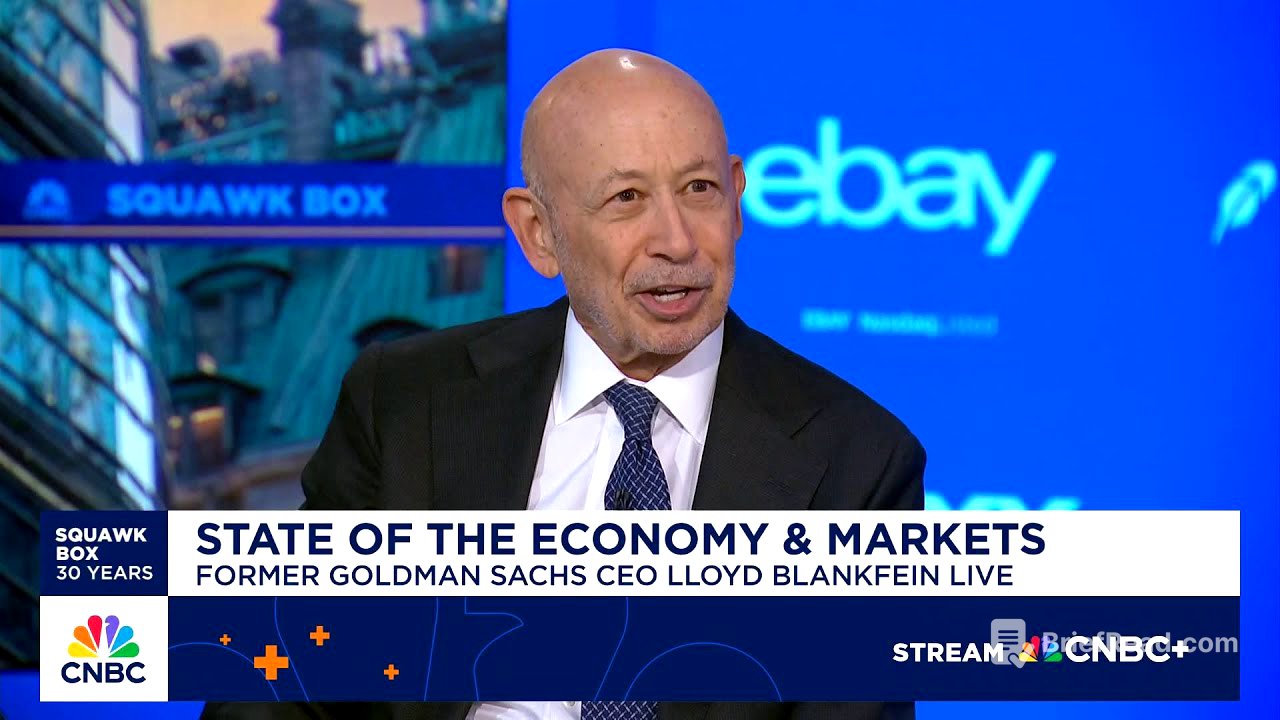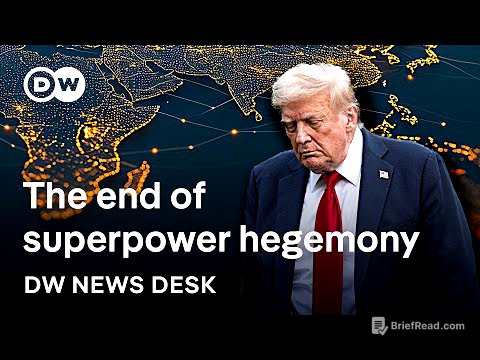TLDR;
Lloyd Blankfein, former CEO of Goldman Sachs, reflects on the 24th anniversary of 9/11, his personal health experiences related to the aftermath, and current economic risks. He expresses a cautiously optimistic view of the market, noting the potential for a bull market due to anticipated interest rate cuts, while also highlighting hidden leverage and environmental hazards as potential risks. Despite these concerns, he remains 100% invested in equities, viewing the current moment as potentially epic, particularly with the rise of AI.
- Reflects on the 24th anniversary of 9/11 and its personal health consequences.
- Cautiously optimistic about the market due to potential interest rate cuts.
- Highlights hidden leverage and environmental hazards as potential risks.
- Remains 100% invested in equities, viewing the current moment as potentially epic, particularly with the rise of AI.
Reflections on 9/11 and Personal Health [0:00]
Lloyd Blankfein reflects on the 24th anniversary of 9/11, recalling his experiences in lower Manhattan and the long-term health consequences for those who worked there. He mentions the constant reminders from late-night TV ads seeking participants for class-action lawsuits related to illnesses caused by the environmental hazards of that day. Blankfein acknowledges his own battle with lymphoma and the potential connection to his exposure during and after the attacks, noting the randomness of who was affected. Despite the somber reflection, he recognizes the natural progression of life and the importance of looking forward.
Current Economic Risks and Market Outlook [2:07]
Blankfein assesses the current economic landscape, describing it as a "wall of worry." He points out the unusual situation of potentially lowering interest rates into a bull market, which generally creates a benign setup for the markets. However, he emphasizes the importance of considering potential risks, particularly hidden leverage within the financial system. He suggests that regulators should scrutinize assets held by insurance companies, ensuring they are accurately valued and capable of meeting long-term liabilities.
The Inevitability of Crises and Investment Strategy [4:54]
Blankfein notes the historical frequency of financial crises, suggesting that another one is due, regardless of current visibility. Despite acknowledging these risks, he reveals that he is personally 100% invested in equities, driven by the anticipation of interest rate cuts fueling a bull market. He expresses enthusiasm for the potential of AI, viewing it as a potentially "epic moment" for investment.
Risk Management and Investment Philosophy [6:17]
Blankfein elaborates on his investment philosophy, distinguishing between his outlook and his actual investment positions. He acknowledges always having concerns but differentiates between managing risk for a firm versus personal investments. He admits to feeling very positive about the market, which paradoxically makes him feel a sense of foreboding, reminiscent of periods before past crises like 2007 and 1994. He emphasizes the importance of protecting against tail risks and seeking opportunities to "own lottery tickets, not write them."
Navigating the Current Market [8:54]
Blankfein advises moving up the credit curve and investing in higher-value companies as a risk mitigation strategy. He notes that the largest companies are well-positioned to capitalize on new technologies due to their resources. While acknowledging the risks associated with smaller, emerging companies, he suggests that focusing on established, innovative firms can be a prudent approach in the current market environment.









